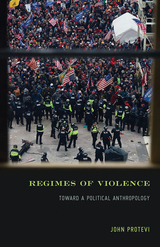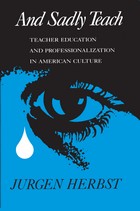
To lend weight to his charge that the public school teacher has been betrayed and gravity to his indictment of the educational establishment for that betrayal, Jurgen Herbst goes back to the beginnings of teacher education in America in the 1830s and traces its evolution up to the 1920s, by which time the essential damage had been done.
Initially, attempts were made to upgrade public school teaching to a genuine profession, but that ideal was gradually abandoned. In its stead, with the advent of newly emerging graduate schools of education in the early decades of the twentieth century, came the so-called professionalization of public education. At the expense of the training of elementary school teachers (mostly women), teacher educators shifted their attention to the turning out of educational "specialists" (mostly men)—administrators, faculty members at normal schools and teachers colleges, adult education teachers, and educational researchers.
Ultimately a history of the neglect of the American public school teacher, And Sadly Teach ends with a plea and a message that ring loud and clear. The plea: that the current reform proposals for American teacher education—the Carnegie and the Holmes reports—be heeded. The message: that the key to successful school reform lies in educating teacher’s true professionals and in acknowledging them as such in their classrooms.
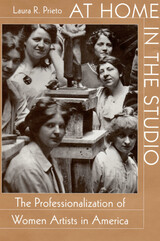
This engaging cultural history examines the emergence of a professional identity for American women artists. By focusing on individual sculptors, painters, and illustrators, Laura Prieto gives us a compelling picture of the prospects and constraints faced by women artists in the United States from the late eighteenth century through the 1930s.
Prieto tracks the transformation from female artisans and ladies with genteel "artistic accomplishments" to middle-class professional artists. Domestic spaces and familial metaphors helped legitimate the production of art by women. Expression of sexuality and representation of the nude body, on the other hand, posed problems for these artists. Women artists at first worked within their separate sphere, but by the end of the nineteenth century "New Women" grew increasingly uncomfortable with separatism, wanting ungendered recognition. With the twentieth century came striking attempts to reconcile domestic lives and careers with new expectations; these decades also ruptured the women's earlier sense of community with amateur women artists in favor of specifically professional allegiances. This study of a diverse group of women artists--diverse in critical reception, geographic location, race, and social background--reveals a forgotten aspect of art history and women's history.

In the French Third Republic, nursing was an occupation caught in the crosscurrents of conflicting notions about the role of women. This deft political history shows how the turmoil and transformation of nursing during this period reflected the political and cultural tensions at work in the nation, including critical conflicts over the role of the Church in society, the professionalization of medicine, the organization and growing militancy of the working classes, and the emancipation of women.
Bodies and Souls describes a time when nursing evolved from a vocation dominated by Catholic orders to a feminine profession that included increasing numbers of lay women. As she pursues this story from the founding of the first full-time professional nursing school in Lyons through the changes wrought by World War I, Katrin Schultheiss reveals how the debates over what nurses were to be, know, and do were deeply enmeshed in issues of class, definitions of femininity, the nature of women's work, and the gendered character of social and national service. Her fine study maps the intersection of these debates with political forces, their impact on hospital nursing and nursing education, and on the shaping of a feminine version of citizenship in France.

Childbirth is a quintessential family event that simultaneously holds great promise and runs the risk of danger. By the late nineteenth century, the birthing room had become a place where the goals of the new scientific professional could be demonstrated, but where traditional female knowledge was in conflict with the new ways. Here the choice of attendants and their practices defined gender, ethnicity, class, and the role of the professional.
Using the methodology of social science theory, particularly quantitative statistical analysis and historical demography, Charlotte Borst examines the effect of gender, culture, and class on the transition to physician-attended childbirth. Earlier studies have focused on physician opposition to midwifery, devoting little attention to the training for and actual practice of midwifery. As a result, until now we knew little about the actual conditions of the midwife's education and practice.
Catching Babies is the first study to examine the move to physician-attended birth within the context of a particular community. It focuses on four representative counties in Wisconsin to study both midwives and physicians within the context of their community. Borst finds that midwives were not pushed out of practice by elitist or misogynist obstetricians. Instead, their traditional, artisanal skills ceased to be valued by a society that had come to embrace the model of disinterested, professional science. The community that had previously hired midwives turned to physicians who shared ethnic and cultural values with the very midwives they replaced.
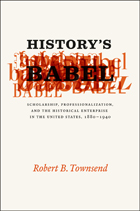
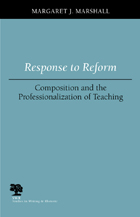
Response to Reform: Composition and the Professionalization of Teaching critiques the politics of labor and gender biases inherent in the composition workplace that prevent literacy teachers from attaining professional status and respect. Scrutinizing the relationship between scholarship and teaching, Margaret J. Marshall calls for a reconceptualization of what it means to prepare for and enter the field of composition instruction.
Interrogating the approach the education system takes to certify teachers without actually “professionalizing” their careers, Marshall contends that these programs rely on outdated rhetorics of labor that only widen the gap between teaching and other professional jobs. Such attempts to re-educate literacy teachers exploit and marginalize their work, and thus prevent them from claiming the status of academic professionals. In providing an overview of the history of and language used to literacy instruction, she also points out that while women are overrepresented in composition instruction, they are underrepresented in tenure track and administrative positions.
To correct and combat these inequities, Marshall advocates an alternate alignment of power structures and rhetorical choices. In a wide-ranging survey that sheds new light on the composition workplace as well as higher education at large, Response to Reform: Composition and the Professionalization of Teaching boldly asks us to do away with the reductive language we inherit from the past that characterize teaching and professionalization, as well as our customary responses to public criticism of education. The result is a new articulation of composition as a meritorious profession.
READERS
Browse our collection.
PUBLISHERS
See BiblioVault's publisher services.
STUDENT SERVICES
Files for college accessibility offices.
UChicago Accessibility Resources
home | accessibility | search | about | contact us
BiblioVault ® 2001 - 2025
The University of Chicago Press






